Exploring Istanbul’s Old City: Rustem Pasha Mosque and Colorful Bazaars
Istanbul
During our European trip, we had only planned to spend three days in Istanbul which turned out to be far too short. We gave it our best shot, but in the end, the Suleymaniye Mosque and the famous Basilica Cistern remained just out of reach. But we did manage to visit the stunning Blue Mosque and the beautiful Rustem Pasha Mosque. Without going to the Grand Bazaar and Spice Bazaar in Istanbul the trip would be imperfect. We kept it for our last day..
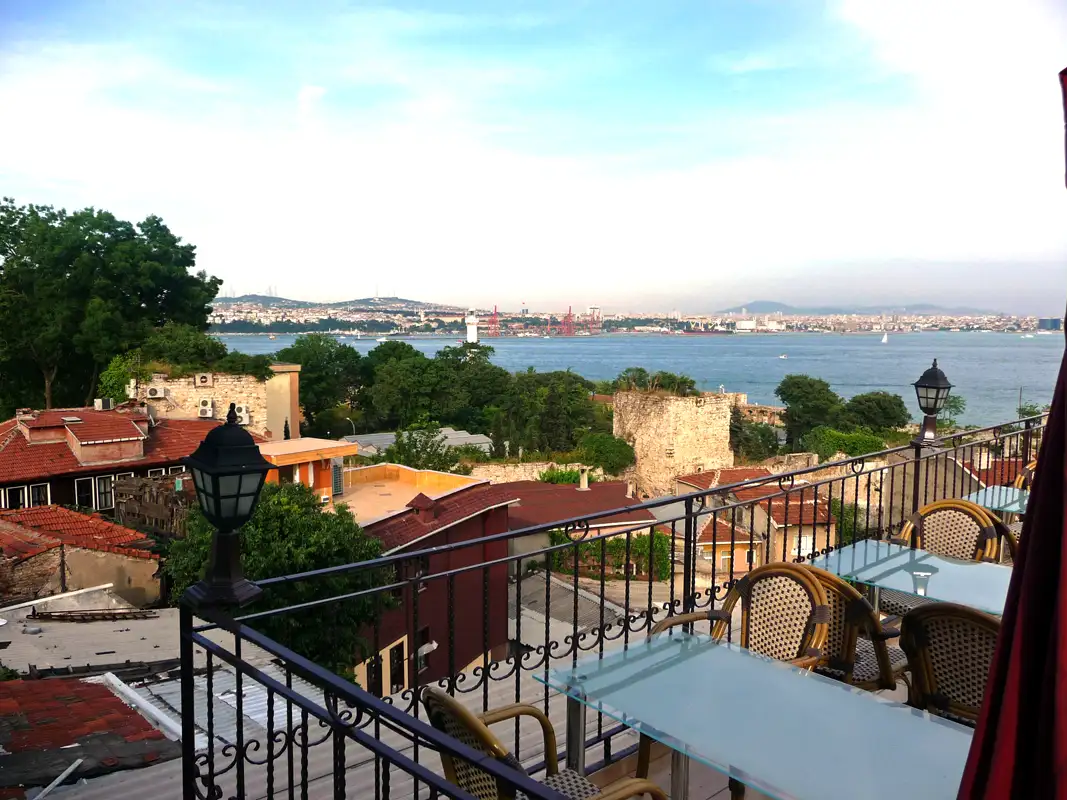
We stayed at the Alp Guesthouse Hotel in Sultanahmet, Istanbul’s historic Old City. Our nice room was in the basement, but breakfast and the rooftop terrace were all the way up on the fifth floor. There was no lift. So we certainly got our daily workout climbing those stairs without a fitness centre.

During the evenings, we loved spending time on the wonderful rooftop terrace. It was usually empty, as most of the guests went out for dinner. We bought some delicious food—and even a bottle of wine—from a nearby convenience store. This is a unique case. Since the street was close to several mosques, most restaurants in the area didn’t serve alcohol. So we enjoyed our romantic dinner on the terrace, with a spectacular view of the Sea of Marmara.
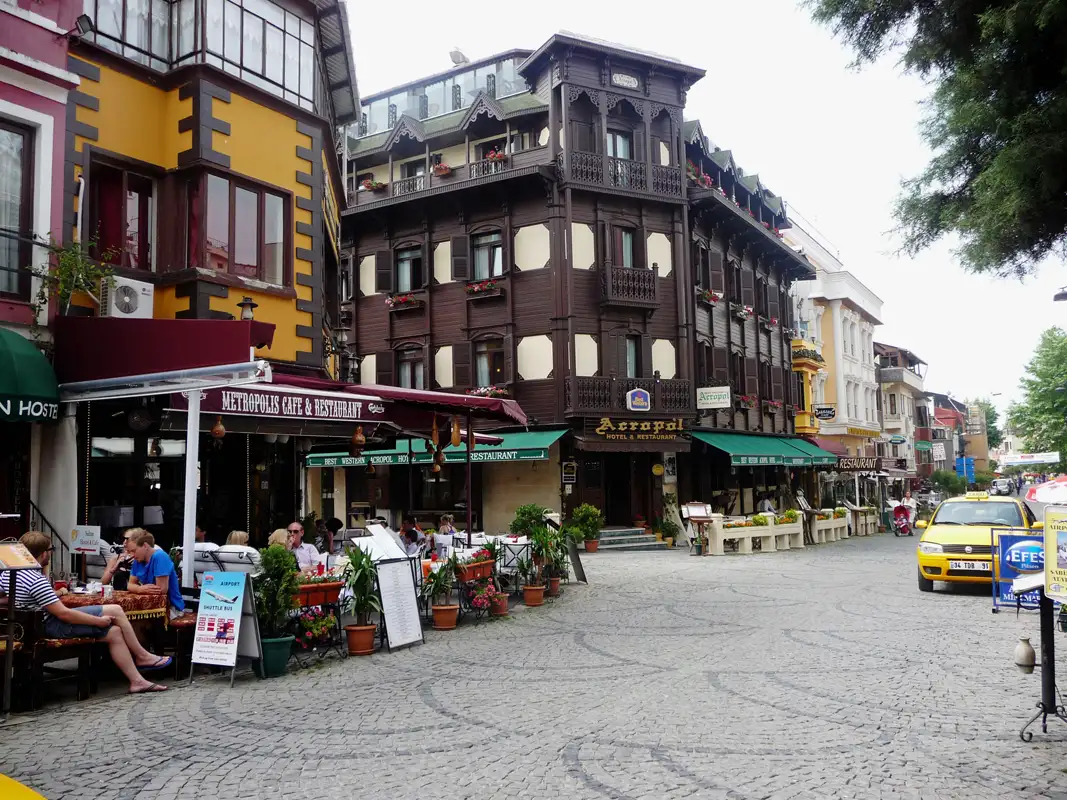
The hotel’s location in the Old City was superb. We were just a short walk from the Topkap Palace, the Hagia Sophia Mosque, and Sultanahmet Square. The hotel is close to the Ishak Pasha Mosque and just before dawn we were woken up by The location of the hotel in the “Old City” was superb. We were just a short walk away from the Topkapı Palace, the Hagia Sophia Mosque, and Sultanahmet Square. It was easy to shop and eat out, with no shortage of good restaurants and handy convenience stores around the old quarter.
Topkapi Palace
Topkapı Palace was built in 1459 by Sultan Mehmed the Conqueror and served as the primary residence of the Ottoman sultans for centuries. It was also a place of learning and culture, with a library, and a hospital. After the abolition of the Ottoman monarchy in 1924, the palace was transformed into a museum.
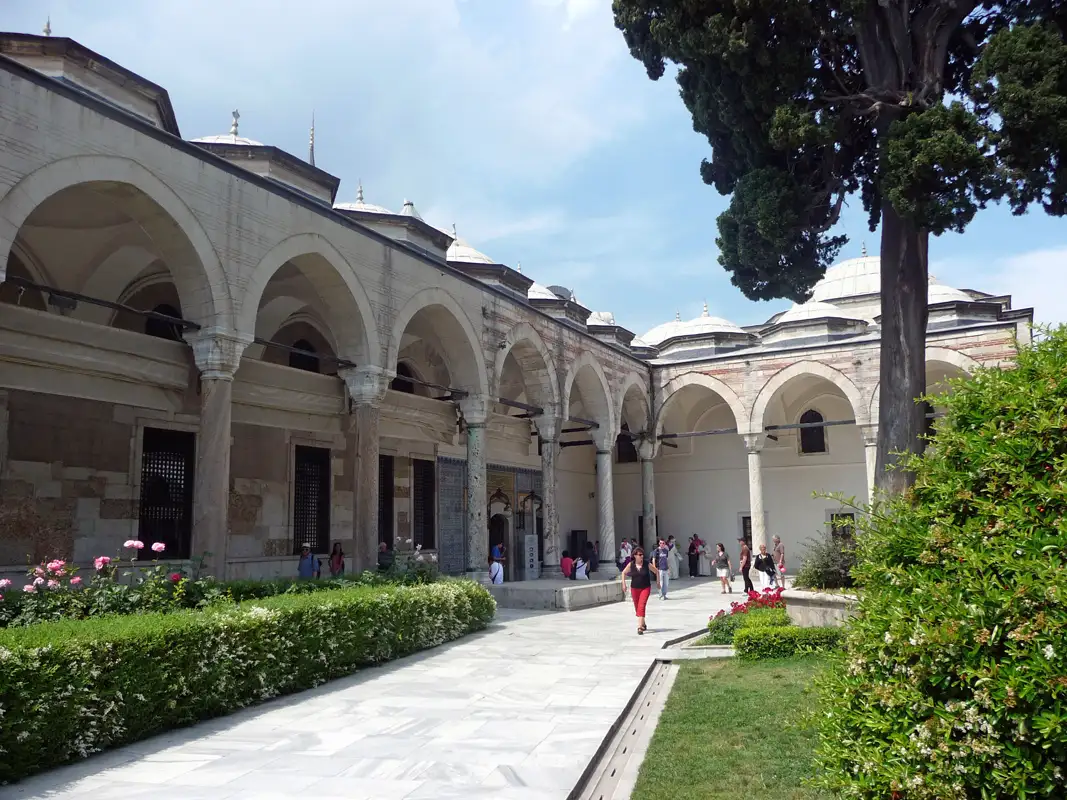
We began our discovery of Istanbul with the nearby Topkap Palace. It took us over three hours to wander through the vast complex. It was never boring, the beautiful courtyards, the intriguing six-level Harem and the Palace Treasury. All was interesting and gave us insight into the grandeur and history of the Ottoman Empire.
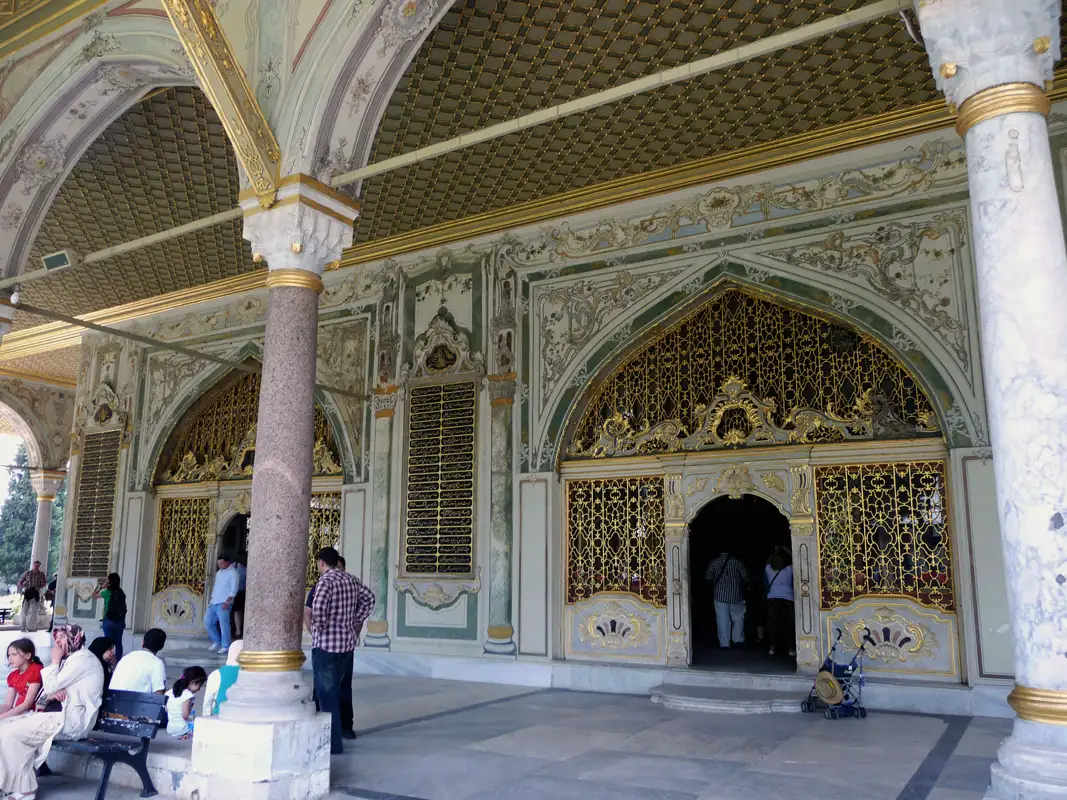
The Treasury was the highlight of our visit to Topkap Palace. We were fascinated by the stunning collection of jewels, fine porcelain, and historic weapons.porcelain. Each piece told a story of the power and grandeur of the Ottoman Empire.
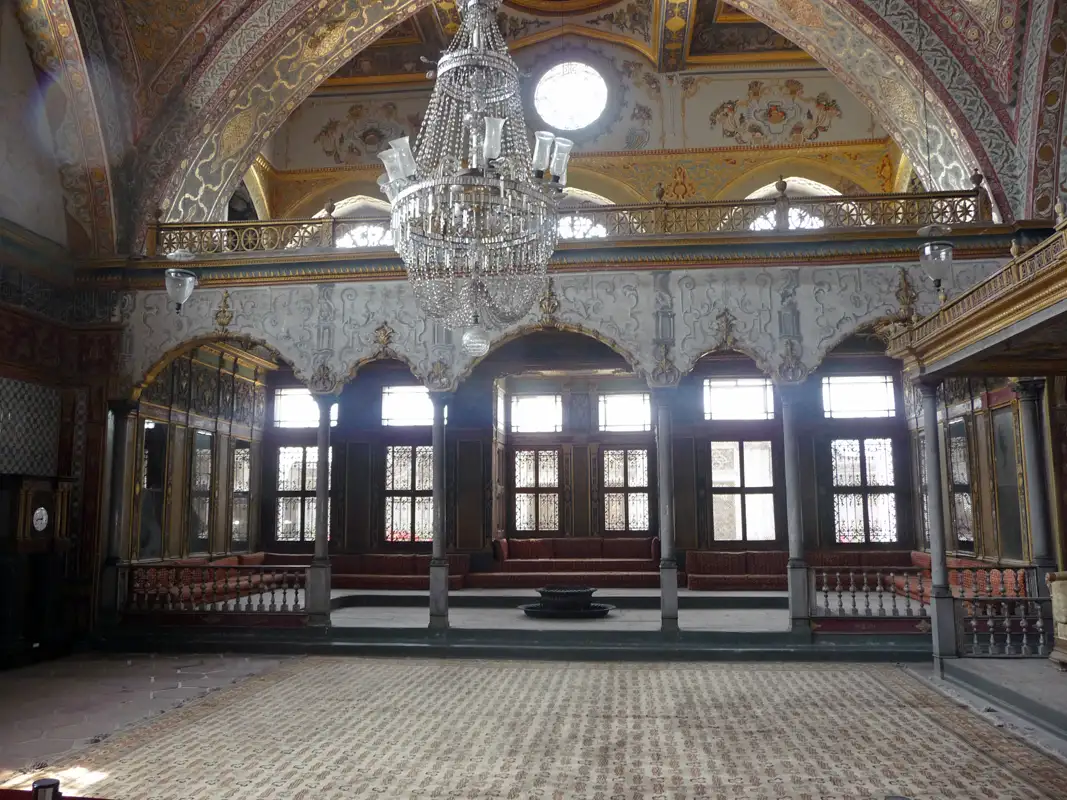
The Harem now feels like a quiet, almost melancholy place. All he beauty and intrigue of women from around the world have vanished.
Mosques
Istanbul is home to some of the most beautiful mosques in the world. These mosques are not simply places of prayer, but also important historical and architectural sites. The large Blue Mosque was wonderful. Our favourite was the stunning Rustem Pasha Mosque , which is nestled in the bustling neighbourhood near the Spice Bazaar.
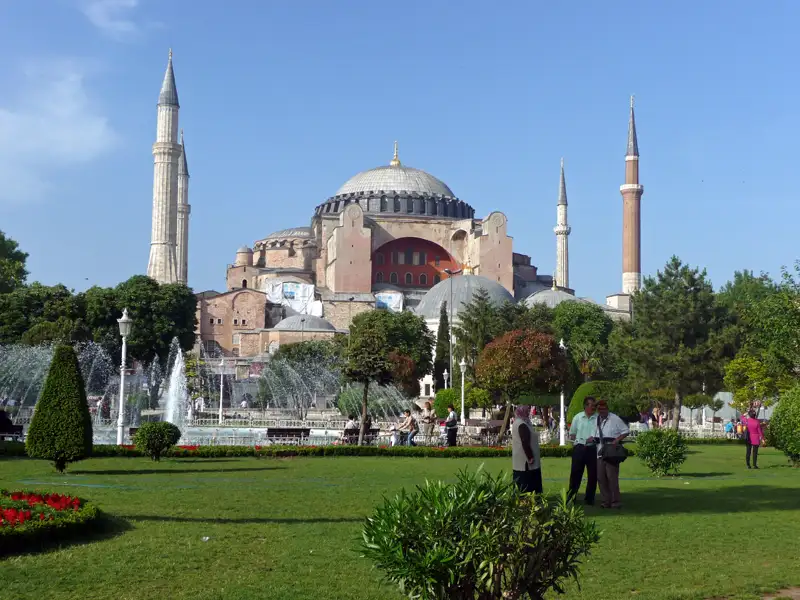
Next, we went to the Hagia Sophia mosque. It is a masterpiece of Byzantine architecture, built as a Roman basilica in the 6th century. It was converted from basilica to mosque, to museum, and back again. The Hagia Sophia has a rich history but not the elegance of the Blue Mosque.
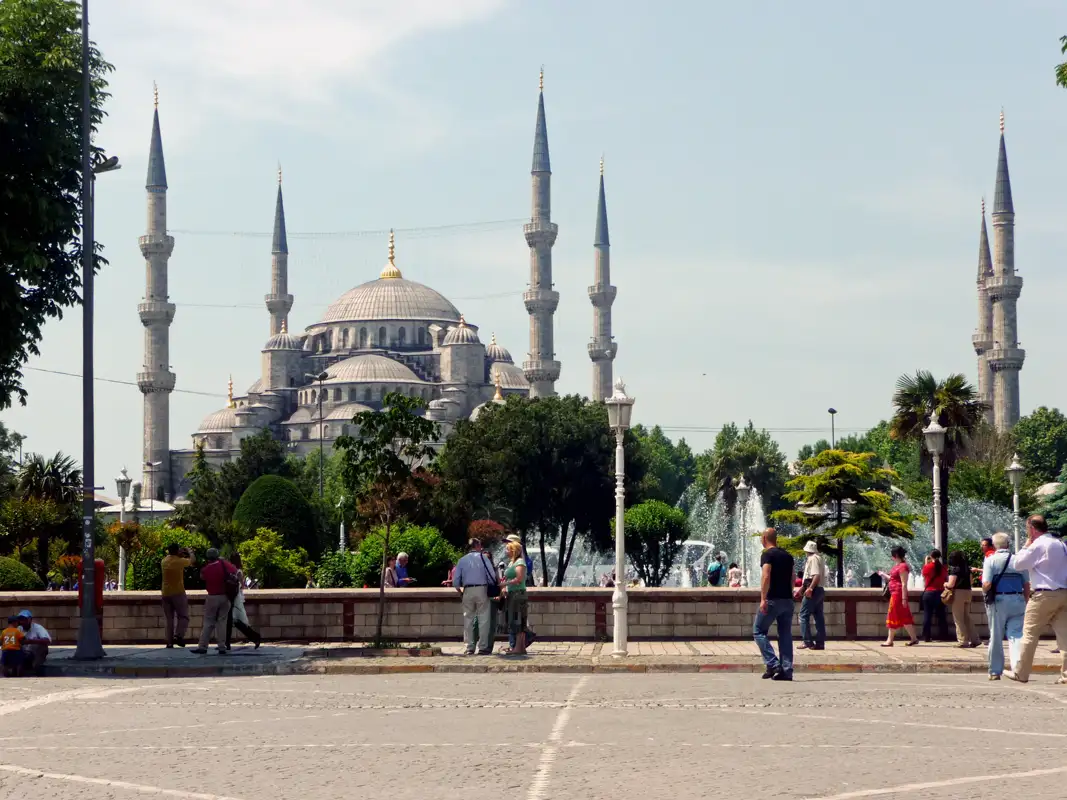
The 400-year-old Blue Mosque, also known as the Sultan Ahmed Mosque, was just a short walk from our hotel. It is A Masterpiece of Ottoman Architecture with six minarets and inside, thousands of exquisite blue Iznik tiles. Our hotel is close to the Mosque and just before dawn we were woken up by a muezzin call to pray. We loved it, but it was a little too early for us. So we turned over and went back to sleep.
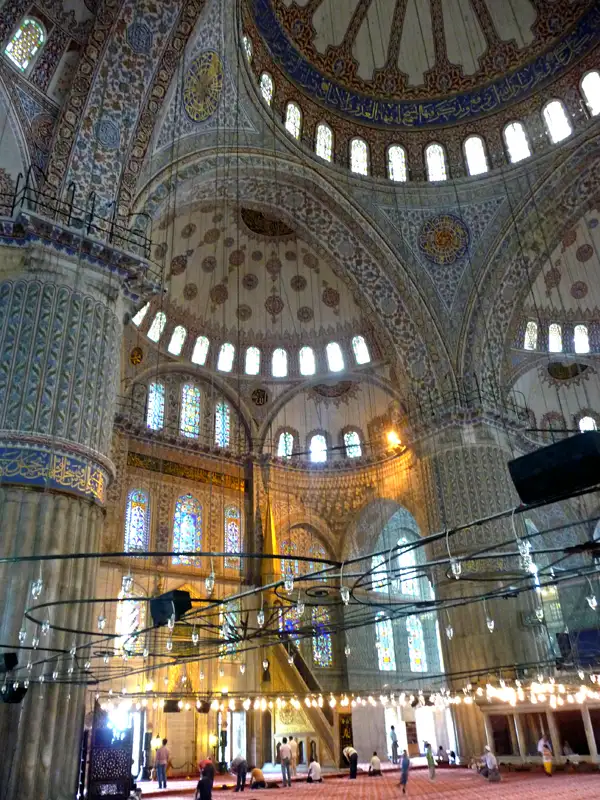
As we stepped into the Rustem Pasha Mosque, we were struck by a wonderful sense of tranquillity, despite the large number of visitors. The interior is stunning, with over 20,000 handmade ceramic tiles and woven carpets. Light from the stained-glass windows, combined with the chandeliers, enhances the atmosphere. We’re not religious, but we loved the beauty and atmosphere of the mosques.
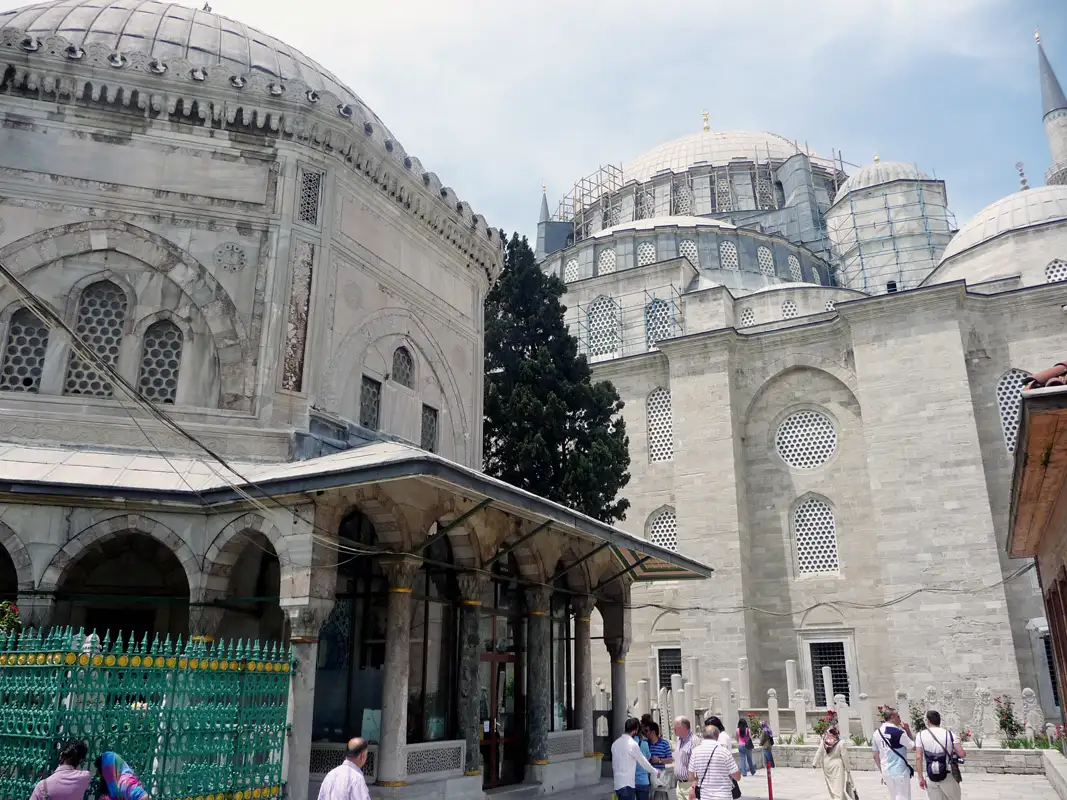
Another important landmark in Istanbul is the Süleymaniye Mosque. It was built in the 16th century during the reign of Sultan Suleiman the Magnificent. We were told it is a stunning Mosque, not to be missed. But when we arrived there after a long walk through the city, it was closed for renovation.
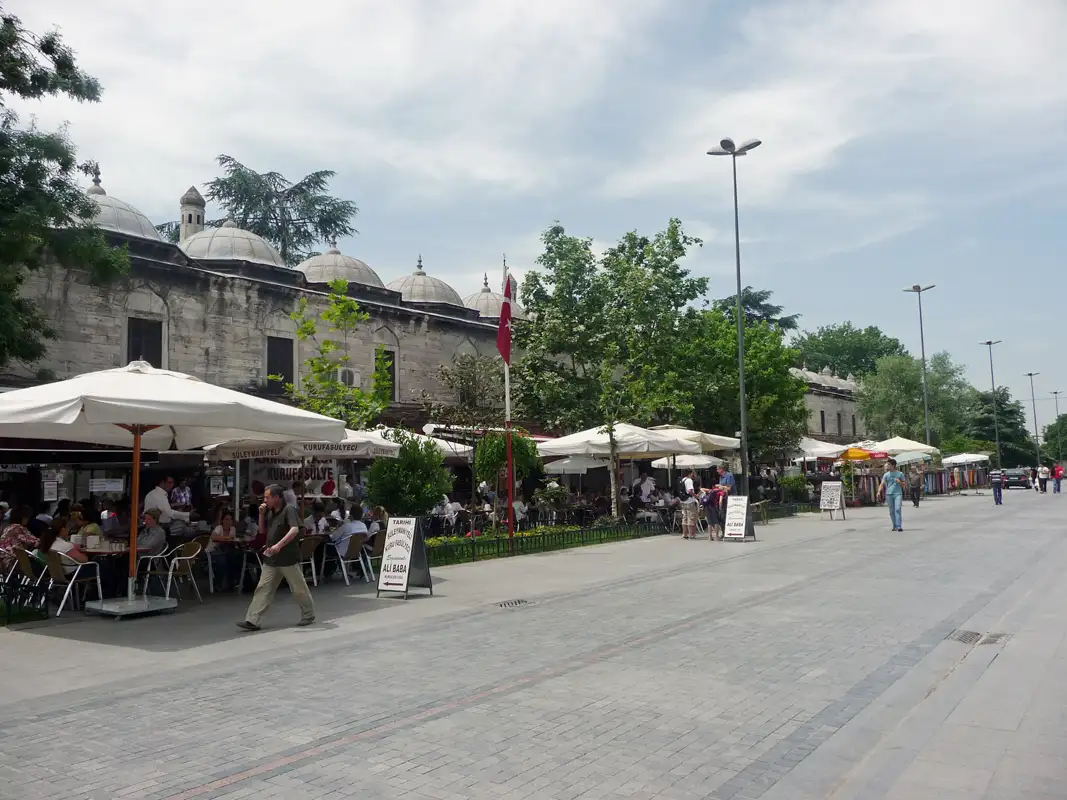
The mosque was more than just a place of worship. It included a hospital, a primary school, a public bath, a caravanserai, a medical school, a Qur’an school, and a public kitchen which served food to the poor. Now, it is restored as a nice restaurant serving tasty meals.
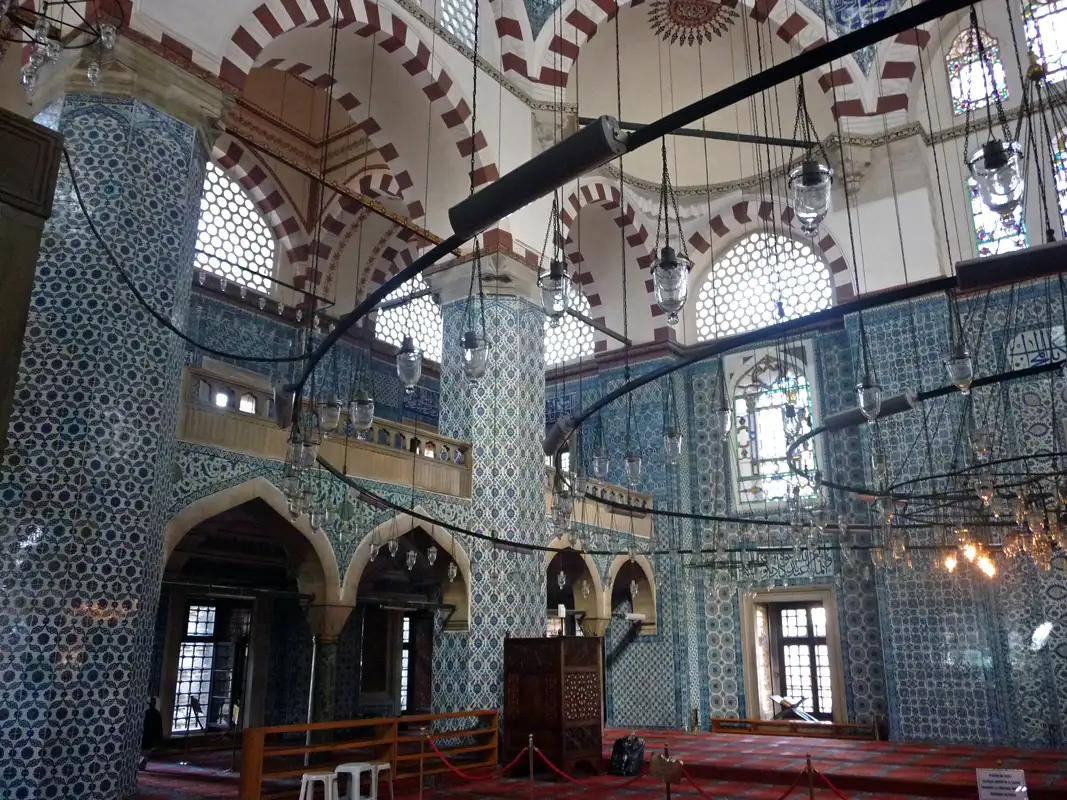
Then we found a hidden gem in Istanbul, located near the Spice Bazaar. The Rustem Pasha Mosque, built in 1562 is a stunning example of Ottoman architecture. It is considered one of his masterpieces due to the quality of the znik tiles. We loved this mosque, small, very elegant and peaceful. Hardly any tourists, just some locals praying there.
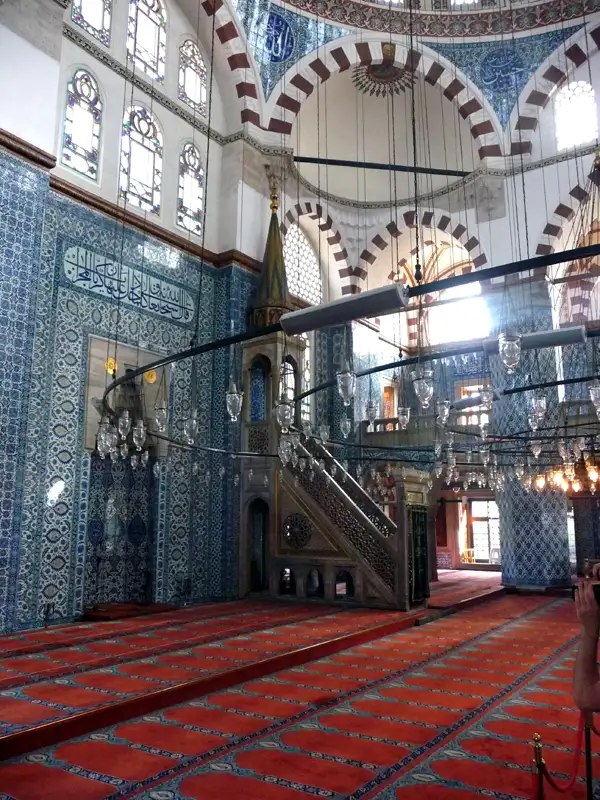
The Rustem Pasha Mosque is often referred to as a “miniature Blue Mosque” without the crowds. When we visited the mosque, there were no tourists and only a few worshippers. The serene atmosphere was wonderful.
Grand Bazaar and other
While walking through Istanbul, we came across many markets and bazaars. Most exciting was the bustling Grand Bazaar in Istanbul with more than 4000 stores. It is a city within the city, with more than 30,000 people working there.
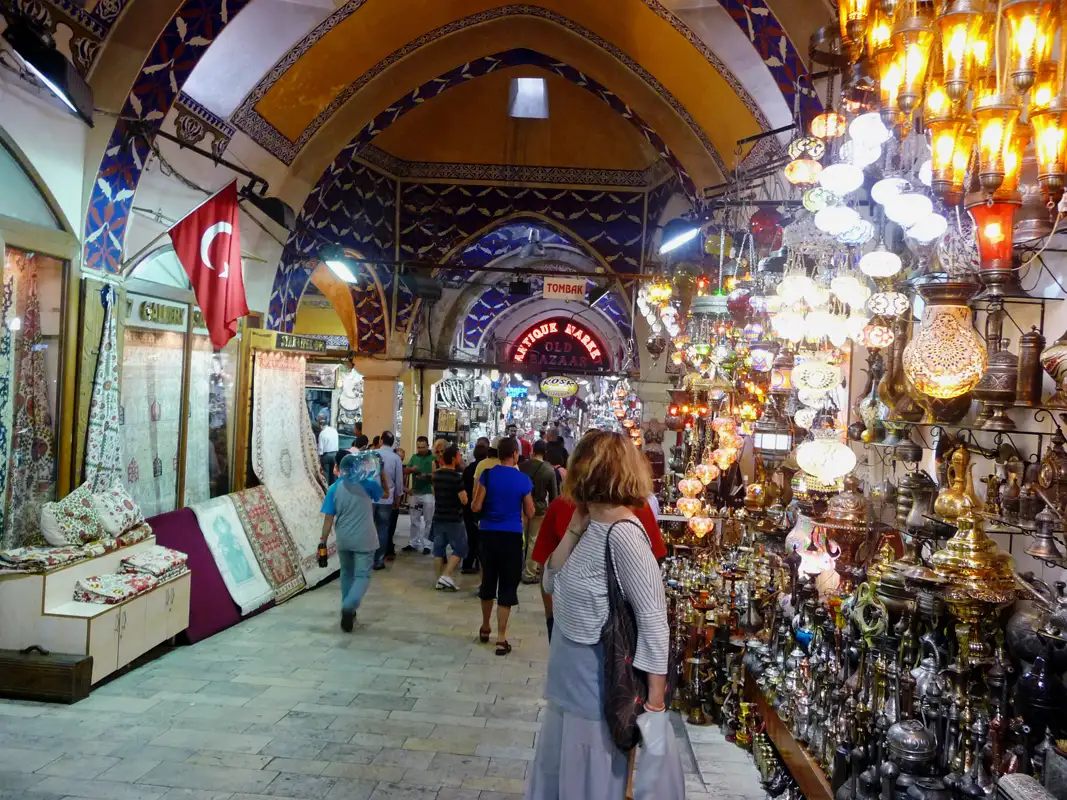
We enjoyed strolling through its labyrinth of streets, though we found shopping there a bit challenging.
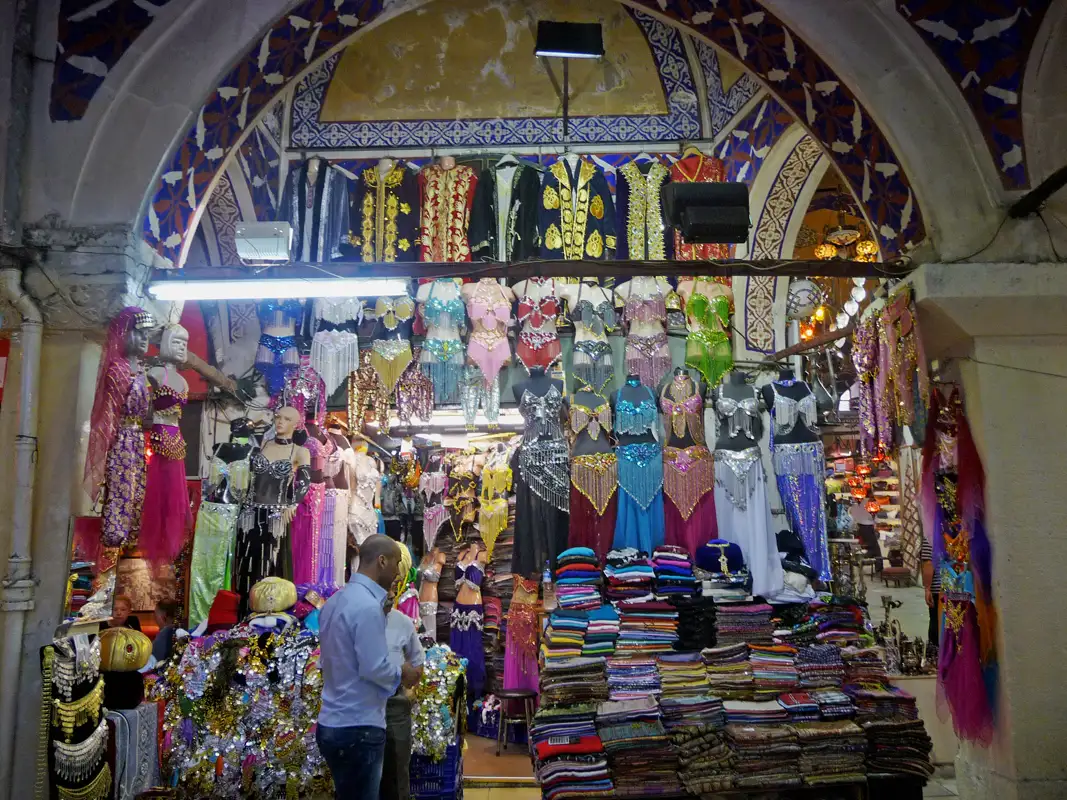
When we saw the fantastic belly dancer costume store in the Grand Bazaar in Istanbul we realised what we would have missed.
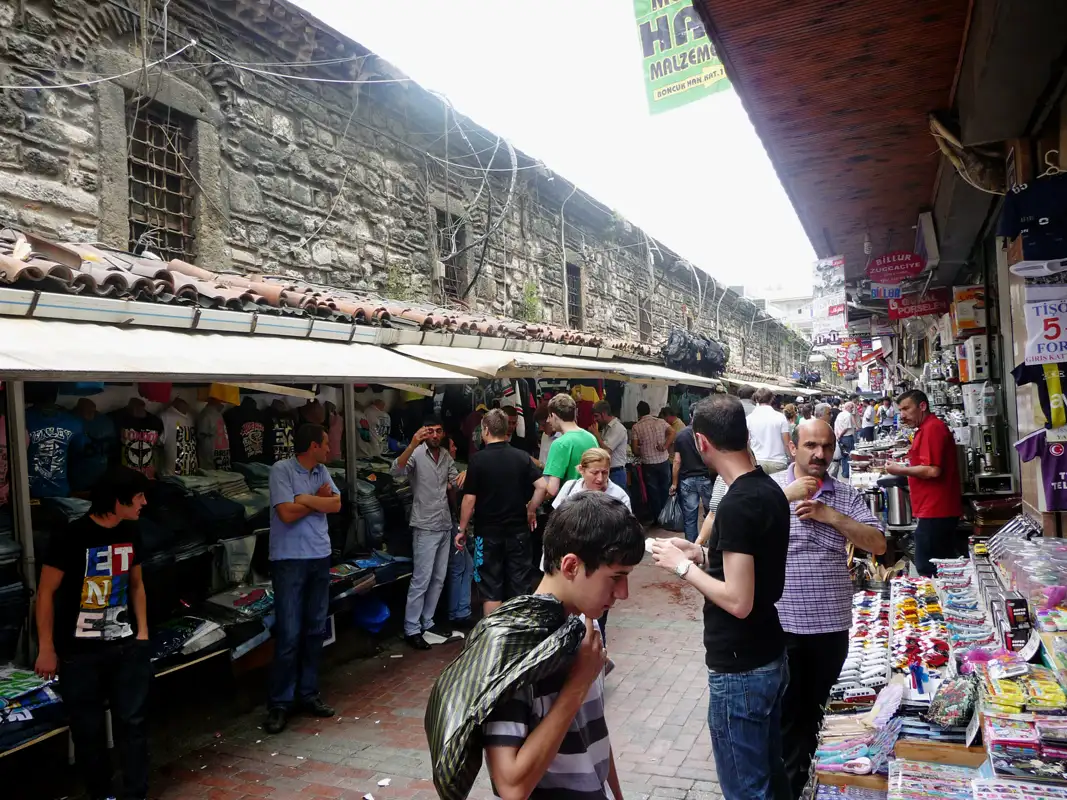
On our route to the Rustem Pasha Mosque, we came across Mahmutpa a Bazaar in Istanbul. It is a local and authentic bazaar and not a tourist-oriented market. At the Bazaar you can buy textiles, clothing, jewellery, and household items. It’s a local market where customers haggle for the best deals.
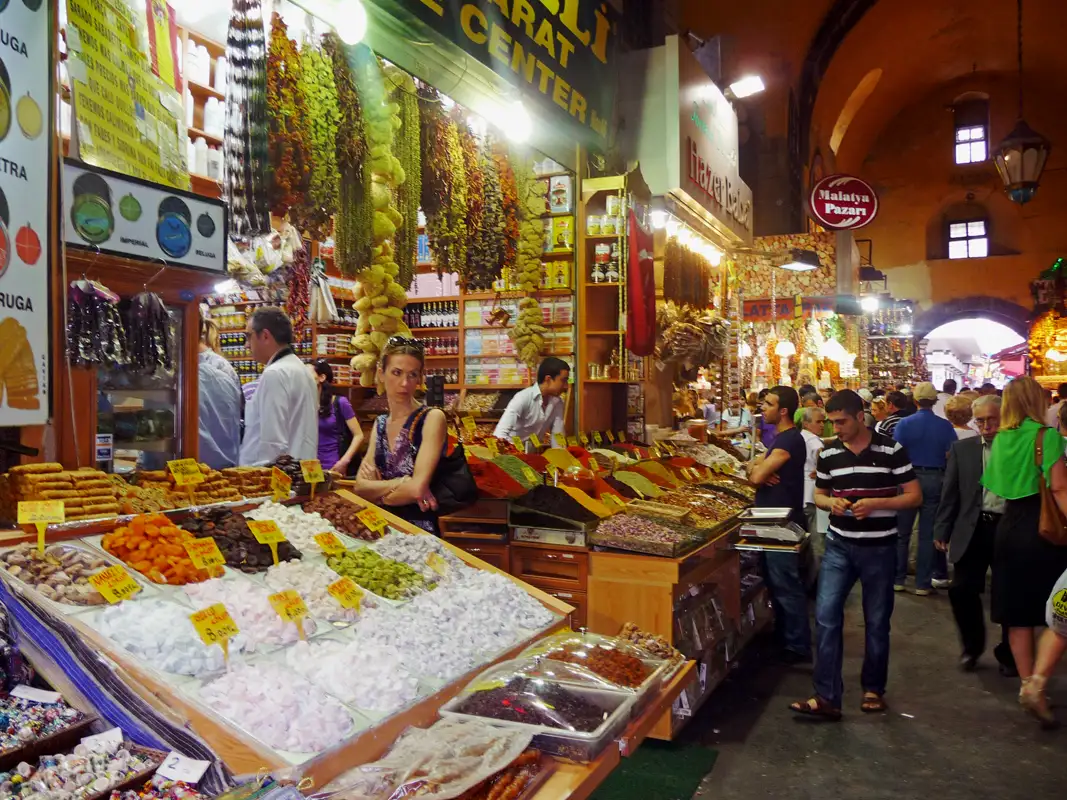
We loved the Spice Bazaar in Istanbul is one of the oldest markets. A bustling marketplace where you can find spices, sweets, nuts, and other delightful products. The vibrant atmosphere makes it a must-visit spot for both locals and tourists. It’s located near the Rustem Pasha Mosque
Golden Horn
The Golden Horn is an inlet of the Bosphorus, which divides the European side of Istanbul from the Asian side. It is a major tourist destination with recreational parks and cultural centres. There are various restaurants and boat cruises to choose from.
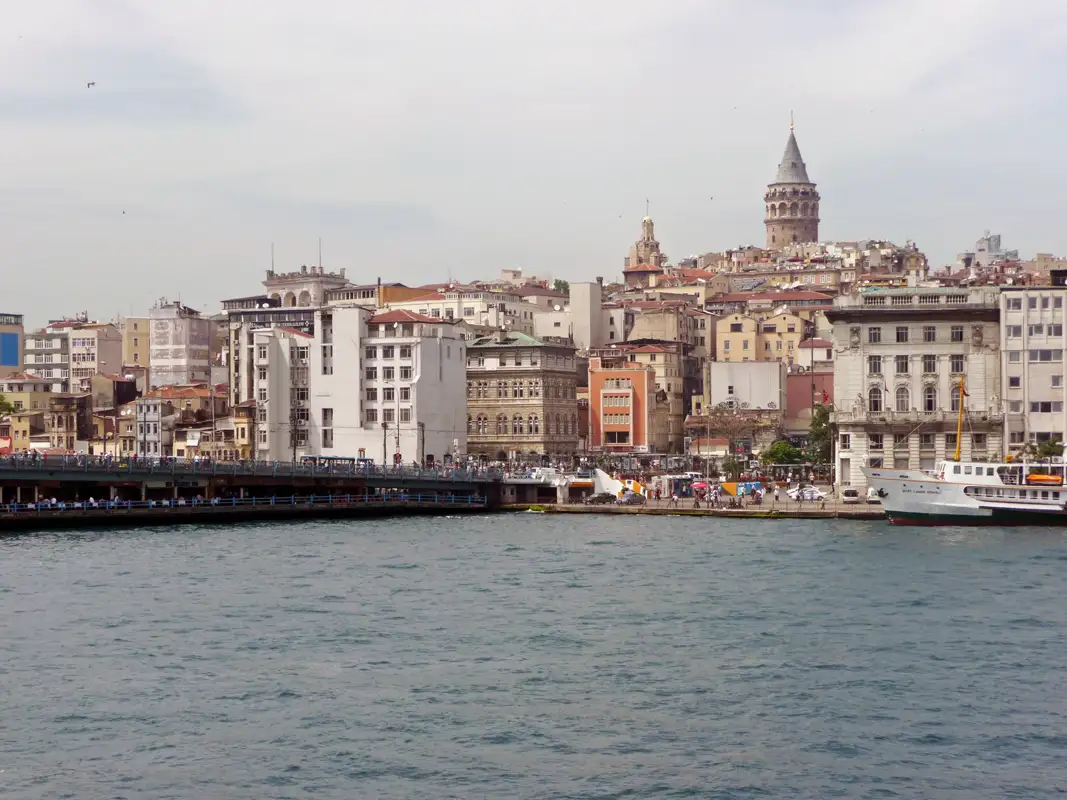
We explored the Galata Bridge and it was very interesting. The bridge it is not just for the traffic but it is also a cultural and social hub. The upper level is for road traffic and tramlines and we watched local fishermen who line the rails to fish in the waters of the Golden Horn. The lower level is for pedestrians, shops, and restaurauts. We had dinner in one of the restaurants, and the views of the Bosphorus, the Golden Horn, and the City was incredible.
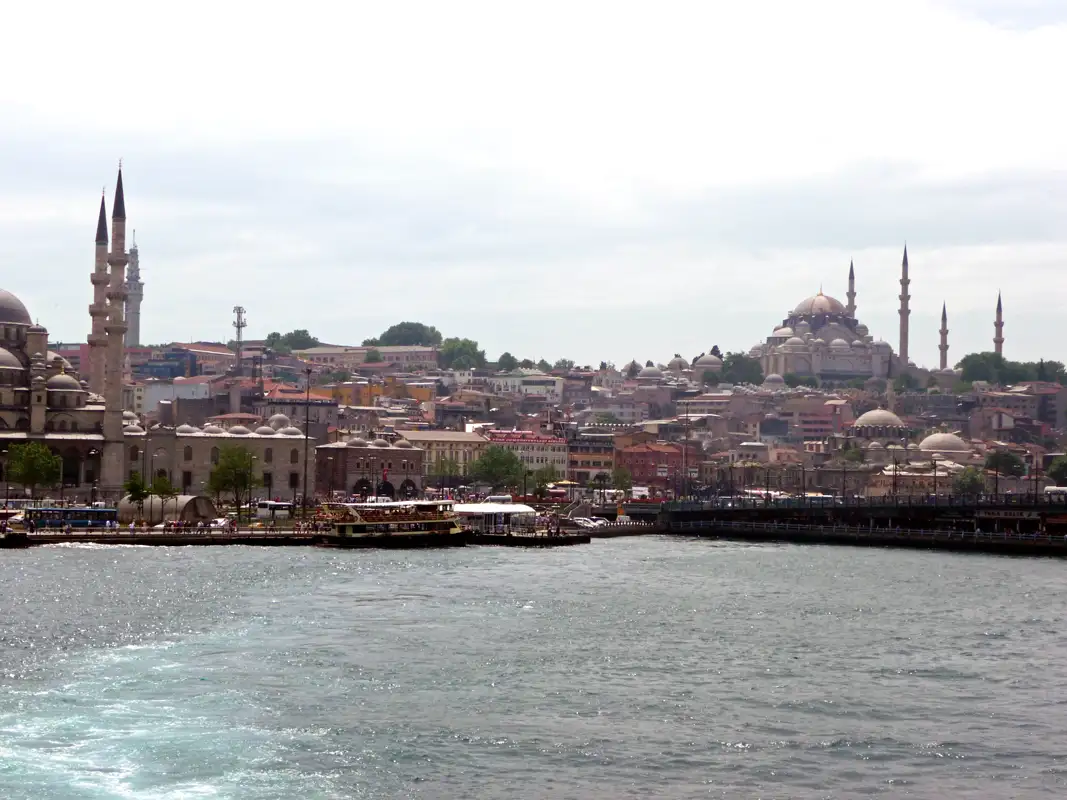
Finally, we did a 2-hour Bosphorus cruise from the Galata Bridge. It was great to see Istanbul from a new angle. On the cruise, we passed the great Dolmabahçe Palace. We sailed under the Bosphorus Bridge. It connects the European and Asian sides of Istanbul. And we saw the mediaeval fortresses, Rumeli Fortress and Anadolu Fortress. This was the end of a wonderful trip to Istanbul.
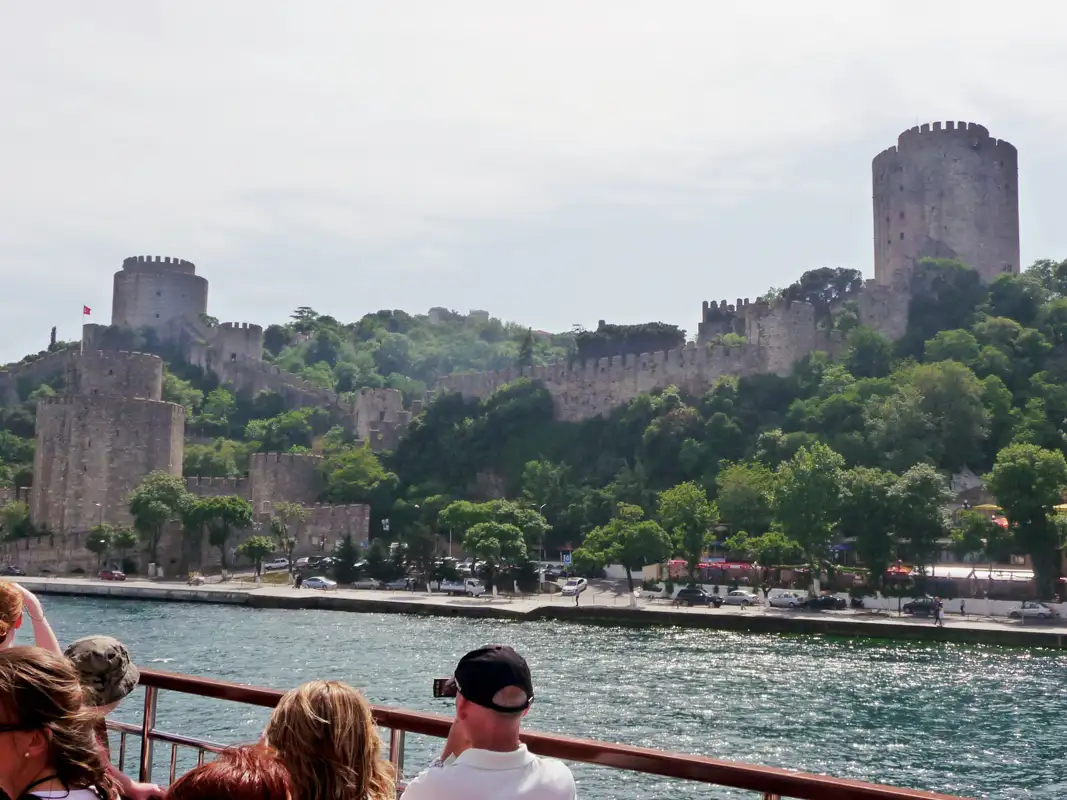
Later, we passed Rumeli Hisarı castle. Ottoman Sultan Mehmed II built the castle in the 15th century. It was part of his plan to siege Constantinople.
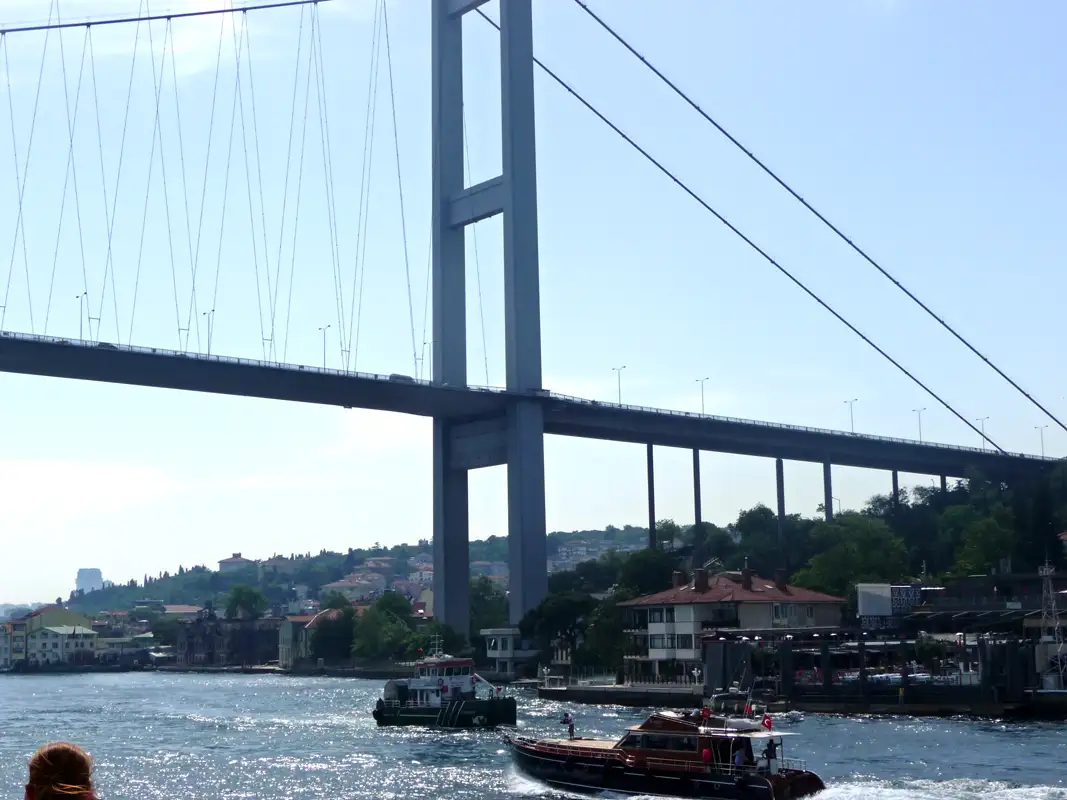
Then, we cruised under the “Bosphorus Bridge”. It connects the European and Asian sides of Istanbul. A visitor can cross between the two continents and is still in the same city that make it unique.
More from Europe: Greece
More from Europe: Germany, Berlin & Frankonia